Kia Niro vs Land Rover Range Rover Velar – Differences & prices compared
Two cars, one duel: Kia Niro meets Land Rover Range Rover Velar.
Which one wins in performance, efficiency and value for money? Find out now!
Costs and Efficiency:
When it comes to price and running costs, the biggest differences usually appear. This is often where you see which car fits your budget better in the long run.
Kia Niro has a significantly advantage in terms of price – it starts at 29100 £, while the Land Rover Range Rover Velar costs 61900 £. That’s a price difference of around 32751 £.
Fuel consumption also shows a difference: Kia Niro manages with 2.40 L and is therefore significantly more efficient than the Land Rover Range Rover Velar with 4.80 L. The difference is about 2.40 L per 100 km.
As for range, the Land Rover Range Rover Velar performs minimal better – achieving up to 63 km, about 1 km more than the Kia Niro.
Engine and Performance:
Power, torque and acceleration are the classic benchmarks for car enthusiasts – and here, some clear differences start to show.
When it comes to engine power, the Land Rover Range Rover Velar has a significantly edge – offering 404 HP compared to 180 HP. That’s roughly 224 HP more horsepower.
In acceleration from 0 to 100 km/h, the Land Rover Range Rover Velar is convincingly quicker – completing the sprint in 5.40 s, while the Kia Niro takes 9.90 s. That’s about 4.50 s faster.
In terms of top speed, the Land Rover Range Rover Velar performs clearly perceptible better – reaching 250 km/h, while the Kia Niro tops out at 185 km/h. The difference is around 65 km/h.
There’s also a difference in torque: Land Rover Range Rover Velar pulls convincingly stronger with 650 Nm compared to 265 Nm. That’s about 385 Nm difference.
Space and Everyday Use:
Whether family car or daily driver – which one offers more room, flexibility and comfort?
Both vehicles offer seating for 5 people.
In curb weight, Kia Niro is clearly perceptible lighter – 1474 kg compared to 2003 kg. The difference is around 529 kg.
In terms of boot space, the Land Rover Range Rover Velar offers slightly more room – 552 L compared to 451 L. That’s a difference of about 101 L.
In maximum load capacity, the Kia Niro performs minimal better – up to 1445 L, which is about 87 L more than the Land Rover Range Rover Velar.
When it comes to payload, Land Rover Range Rover Velar noticeable takes the win – 587 kg compared to 466 kg. That’s a difference of about 121 kg.
Who comes out on top?
Overall, the Land Rover Range Rover Velar shows itself to be is largely superior and secures the title of DriveDuel Champion.
It convinces with the more balanced overall package and proves to be the more versatile choice for everyday use.

Land Rover Range Rover Velar
Kia Niro
The Kia Niro presents itself as a versatile and eco-friendly SUV, blending a stylish design with advanced hybrid technology. Its spacious interior offers comfort and practicality, making it ideal for both city driving and longer journeys. With a focus on efficiency and sustainability, the Niro is a compelling choice for environmentally conscious drivers.
details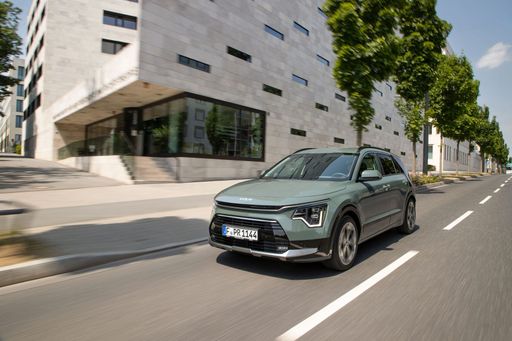 @ press.kia.com
@ press.kia.com
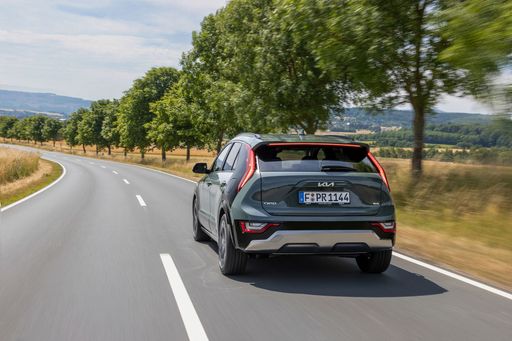 @ press.kia.com
@ press.kia.com
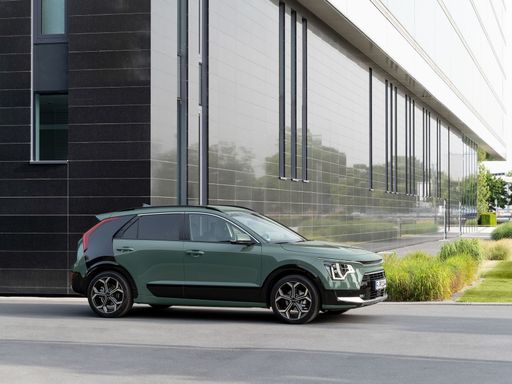 @ press.kia.com
@ press.kia.com
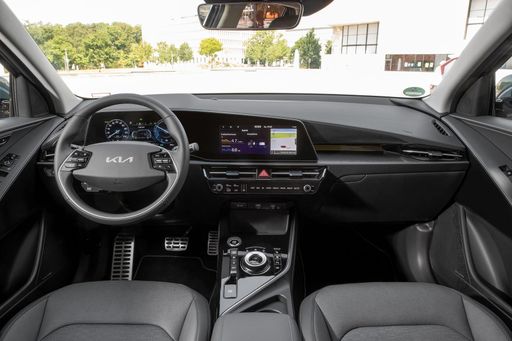 @ press.kia.com
@ press.kia.com
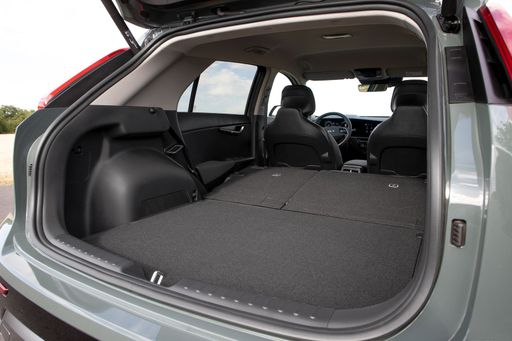 @ press.kia.com
@ press.kia.com
Land Rover Range Rover Velar
The Land Rover Range Rover Velar exemplifies a harmonious blend of elegance and capability, capturing the essence of modern luxury SUVs. Its sleek silhouette and refined design details make it stand out on both urban roads and off-road adventures. Inside, the Velar offers an impeccably crafted interior, combining premium materials with cutting-edge technology for a sophisticated driving experience.
details @ media.landrover.com
@ media.landrover.com
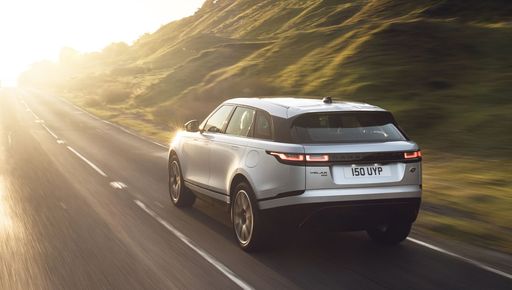 @ media.landrover.com
@ media.landrover.com
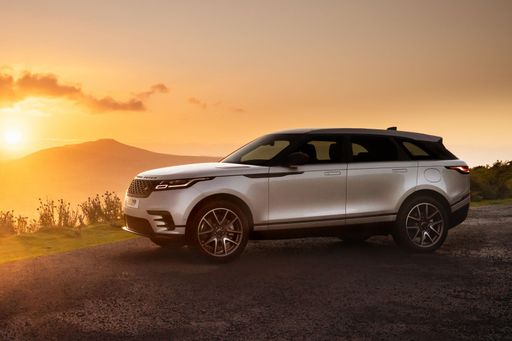 @ media.landrover.com
@ media.landrover.com
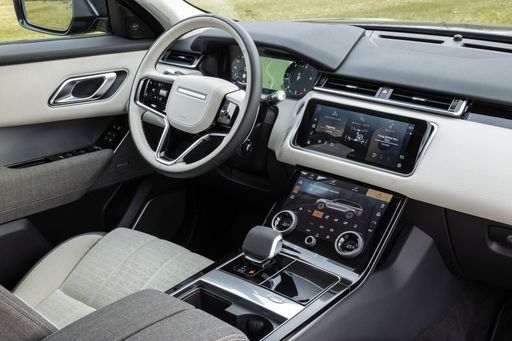 @ media.landrover.com
@ media.landrover.com

|

|
|
|
|
Costs and Consumption |
|
|---|---|
|
Price
29100 - 38600 £
|
Price
61900 - 87400 £
|
|
Consumption L/100km
2.4 - 4.9 L
|
Consumption L/100km
4.8 - 10.2 L
|
|
Consumption kWh/100km
-
|
Consumption kWh/100km
-
|
|
Electric Range
57 - 62 km
|
Electric Range
63 km
|
|
Battery Capacity
1.3 - 11.1 kWh
|
Battery Capacity
15.40 kWh
|
|
co2
53 - 111 g/km
|
co2
110 - 232 g/km
|
|
Fuel tank capacity
37 - 42 L
|
Fuel tank capacity
62 - 83 L
|
Dimensions and Body |
|
|---|---|
|
Body Type
SUV
|
Body Type
SUV
|
|
Seats
5
|
Seats
5
|
|
Doors
5
|
Doors
5
|
|
Curb weight
1474 - 1594 kg
|
Curb weight
2003 - 2280 kg
|
|
Trunk capacity
348 - 451 L
|
Trunk capacity
503 - 552 L
|
|
Length
4420 mm
|
Length
4797 mm
|
|
Width
1825 mm
|
Width
1933 mm
|
|
Height
1545 mm
|
Height
1657 - 1665 mm
|
|
Max trunk capacity
1342 - 1445 L
|
Max trunk capacity
1335 - 1358 L
|
|
Payload
466 kg
|
Payload
460 - 587 kg
|
Engine and Performance |
|
|---|---|
|
Engine Type
Full Hybrid, Plugin Hybrid
|
Engine Type
Petrol MHEV, Plugin Hybrid, Diesel MHEV
|
|
Transmission
Automatic
|
Transmission
Automatic
|
|
Transmission Detail
Dual-Clutch Automatic
|
Transmission Detail
Automatic Gearbox
|
|
Drive Type
Front-Wheel Drive
|
Drive Type
All-Wheel Drive
|
|
Power HP
138 - 180 HP
|
Power HP
204 - 404 HP
|
|
Acceleration 0-100km/h
9.9 - 11.4 s
|
Acceleration 0-100km/h
5.4 - 8.3 s
|
|
Max Speed
170 - 185 km/h
|
Max Speed
209 - 250 km/h
|
|
Torque
265 Nm
|
Torque
430 - 650 Nm
|
|
Number of Cylinders
4
|
Number of Cylinders
4 - 6
|
|
Power kW
102 - 132 kW
|
Power kW
150 - 297 kW
|
|
Engine capacity
1580 cm3
|
Engine capacity
1997 - 2997 cm3
|
General |
|
|---|---|
|
Model Year
2025
|
Model Year
2025
|
|
CO2 Efficiency Class
C, B
|
CO2 Efficiency Class
G, C
|
|
Brand
Kia
|
Brand
Land Rover
|
Is the Kia Niro offered with different drivetrains?
The Kia Niro is available as Front-Wheel Drive.
The prices and data displayed are estimates based on German list prices and may vary by country. This information is not legally binding.
